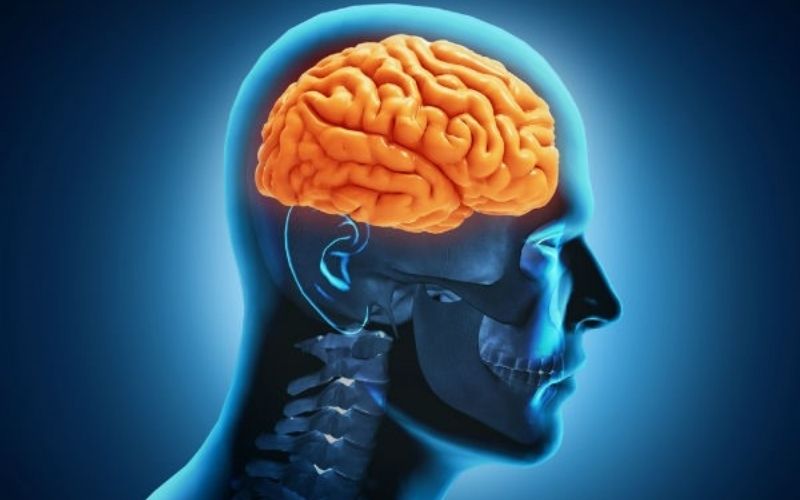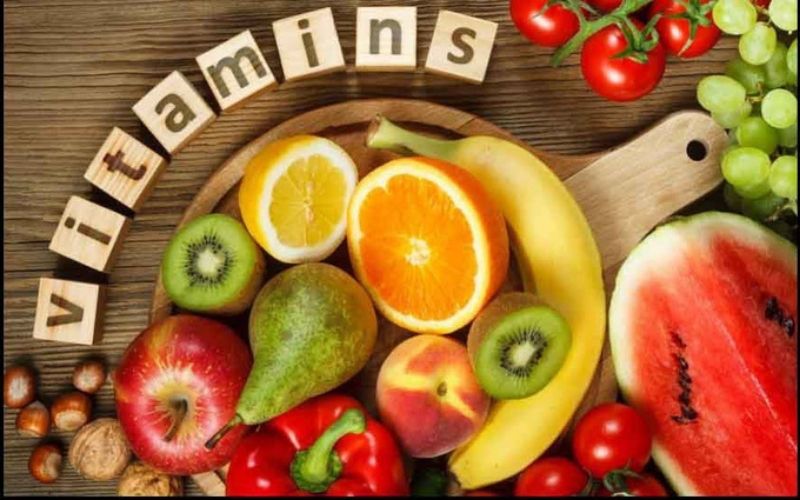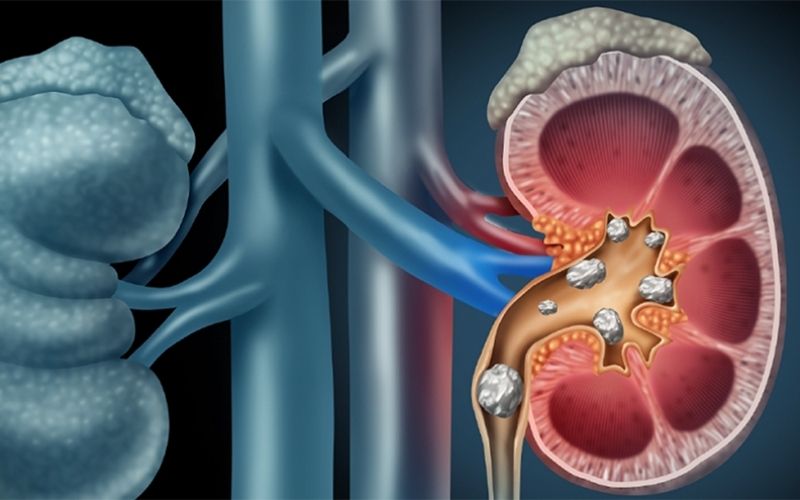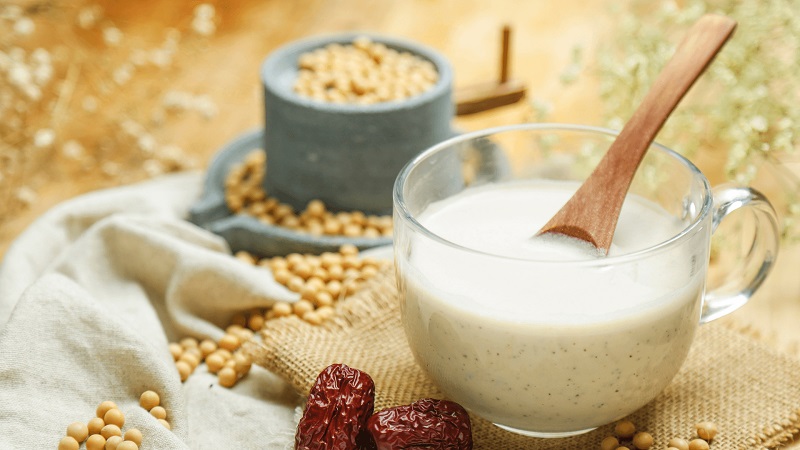Soybeans are a nutritious food packed with health benefits. They can be prepared in various ways, such as grinding into flour, making drinks, or eating directly. Roasted soybeans, in particular, have become a popular snack among women.
1. Benefits of Soybeans
Good for the Cardiovascular System
 Soybeans help prevent cardiovascular diseases
Soybeans help prevent cardiovascular diseases
Roasted soybeans retain their nutritional value, including protein, fiber, vitamins, minerals, omega-3 fatty acids, and antioxidants. Regular consumption helps reduce bad cholesterol and prevent cardiovascular issues like stroke and heart attack.
According to Doctor Do Thi Ngoc Diep, soybeans contain approximately 38% protein, double the amount found in 100 grams of pork. This plant-based protein helps lower LDL (bad cholesterol) and prevents atherosclerosis and hypertension.
Aids in Weight Loss
Eating or drinking roasted soybeans makes you feel fuller for longer. Consuming a glass of soybean milk 15 minutes before a meal will reduce your overall food intake, helping you lose weight safely and effectively.
Promotes Healthy Skin
Soybeans are rich in antioxidants that prevent skin aging. The plant-based estrogen in soybeans supplements the body’s estrogen levels, influencing the structure of subcutaneous fat and making the skin rosy, smooth, and wrinkle-free.
Strengthens Bones
 Soybeans help strengthen bones
Soybeans help strengthen bones
Soybeans contain genistein, which reduces bone loss and prevents bone aging. They are also rich in calcium, which helps maintain strong bones and prevents osteoporosis in postmenopausal women and the elderly.
A two-year study by the Institute of Optimal Nutrition and the University of Copenhagen (Denmark) found that soybeans, in addition to their high calcium content, also contain large amounts of isoflavones, which reduce the risk of osteoporosis in postmenopausal women.
Reduces Risk of Depression
 Soybeans help reduce the risk of depression
Soybeans help reduce the risk of depression
Homocysteine is a compound that blocks the transport of blood and nutrients to the brain and interferes with the production of feel-good neurotransmitters like serotonin, dopamine, and norepinephrine. The folate in soybeans reduces the risk of depression by lowering homocysteine levels.
Prevents Kidney and Type 2 Diabetes
 Soybeans help prevent kidney disease and type 2 diabetes
Soybeans help prevent kidney disease and type 2 diabetes
People with kidney disease and type 2 diabetes often experience excessive protein loss in their urine. However, those who consume plant-based protein from soybeans excrete less protein than those who consume animal-based protein, reducing the risk of kidney disease and diabetes.
Boosts Energy
 Soybeans help boost energy
Soybeans help boost energy
The iron in soybeans helps you efficiently utilize your energy and prevents fatigue. With an iron content comparable to many other nutritious foods, soybeans can provide an energy boost when needed.
Improves Memory
 Soybeans help improve memory
Soybeans help improve memory
Soybeans contain a large amount of lecithin, one of the most important components for brain function. Additionally, the lecithin and sterol in soybeans can prevent Alzheimer’s disease, enhance nerve function, and improve vitality.
Prevents Hearing Loss
 Soybeans help prevent hearing loss
Soybeans help prevent hearing loss
In addition to iron, soybeans are also rich in zinc. The iron in soybeans softens blood vessels and ensures adequate blood flow to the ears. Meanwhile, zinc can treat tinnitus and prevent sudden hearing loss caused by viruses. Thus, soybeans are effective in preventing hearing loss in the elderly.
Reduces Menopausal Symptoms
Soybeans contain isoflavone, a compound that mimics the action of estrogen and helps reduce menopausal symptoms.
Provides Essential Vitamins
 Soybeans provide essential vitamins
Soybeans provide essential vitamins
Soybeans are a good source of vitamins A, B, and C and other beneficial micronutrients. Consuming soybean milk or roasted soybeans provides essential energy and nutrients for overall health and development.
2. Who Should Not Consume Roasted Soybeans
While soybeans offer numerous benefits, a healthy adult should consume only 1-2 glasses of soybean milk made from roasted soybeans per day. In some cases and for certain individuals, roasted soybeans should be limited or avoided altogether:
People with Soy Allergies
 People with soybean allergies
People with soybean allergies
Soy allergy is a common allergy that causes various uncomfortable symptoms, such as itching in the mouth, skin rashes, facial swelling, abdominal pain, nausea, and flushed skin. If you have this allergy, avoid soybean products and consult a doctor if symptoms worsen.
Children
 Children should not consume excessive soybean products
Children should not consume excessive soybean products
During the toddler stage, drinking soybean milk too frequently can lead to deficiencies in nutrients essential for bone, teeth, muscle, and central nervous system development. Additionally, since soybean milk contains less protein than cow’s milk, ensure your child gets enough calcium and protein from other sources.
Furthermore, soybean products should not be given to children before puberty due to the presence of estrogen, which can cause early puberty in girls and psychological instability in boys.
People with Kidney Stones
 People with kidney stones should avoid soybean products
People with kidney stones should avoid soybean products
People with kidney stones are advised against consuming soybean milk or other soybean products because oxalate in soybean milk can combine with calcium in the kidneys to form kidney stones, worsening the condition.
People with Hypothyroidism
 People with hypothyroidism should limit soybean products
People with hypothyroidism should limit soybean products
Those with hypothyroidism should limit soybean products as they contain isoflavones, which can inhibit the production of T3 and T4 hormones, making it difficult to recover from hypothyroidism.
Notes on Consuming Roasted Soybeans:
 Soybeans provide essential vitamins
Soybeans provide essential vitamins
- Whether you choose to eat or drink roasted soybeans, avoid overconsumption, as it can affect your health. The recommended amount of roasted soybean powder for an adult is less than 90 grams per day. Excessive consumption can cause stomach pain and bloating, negatively impacting digestion.
- It is best to buy soybeans and roast them yourself or purchase them from a reputable source.
- Roasted soybeans can be a healthy alternative to oily snacks. To ensure effective weight loss, consume roasted soybeans or soybean milk 15 minutes before a meal.
Roasted soybeans offer numerous health benefits, so consider incorporating this nutritious legume into your family’s diet.
3. Delicious Soybean Dishes
Roasted Soybeans with Salt
 Roasted soybeans with salt
Roasted soybeans with salt
Roasted soybeans with salt is a delightful combination of the rich, buttery flavor of soybeans and just the right amount of saltiness. This preparation method also helps retain protein and other nutrients found in soybeans.
Soybean Milk with Pandan Leaves
 Soybean milk with pandan leaves
Soybean milk with pandan leaves
If you’re looking for something different from regular soybean milk, try soybean milk with pandan leaves. This drink not only has a unique, delicious flavor but is also highly nutritious, aiding digestion, preventing joint pain, and offering various other benefits.
Chicken Hot Pot with Soybean Milk
 Chicken hot pot with soybean milk
Chicken hot pot with soybean milk
This dish is a favorite among women trying to lose weight as it provides both plant-based and animal-based protein from chicken and various nutrients from vegetables. It also has a unique, mouthwatering flavor that can be addictive for food lovers.
Soybean Milk
The most famous soybean product, soybean milk, has a delicious, slightly buttery taste. A warm glass of soybean milk is a great way to start your day.
Tofu with Black Sugar Tapioca Pearls
Soft, smooth, and fresh tofu with sweet and chewy black sugar tapioca pearls—a truly irresistible combination.
 Tofu with black sugar tapioca pearls
Tofu with black sugar tapioca pearls
We hope that through this article, you have gained a better understanding of the 11 amazing benefits of soybeans. Why not treat your family to some delicious soybean dishes today?
Source: Vinmec.
Exploring the Benefits of Chia Seeds on Good Health: What You Need to Know
 Health: What You Need to Know’>
Health: What You Need to Know’>Did you know that chia seeds come from the same family as herbs that are used in spices such as mint and basil? These seeds are a popular health food due to their unique health benefits. Read on to find out how these seeds can be used and why they're so beneficial!




































